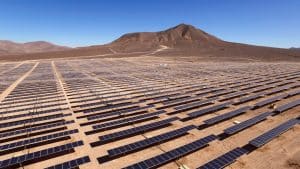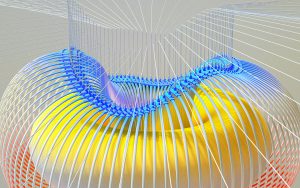Hydrogen Fuel Cells: The Next Frontier in Zero-Emission Vehicles
The world is experiencing a surge in the demand for more eco-friendly solutions in all aspects of our lives. One of the industries that have been at the forefront of this movement is the automotive industry, with the increasing concern for traditional gasoline and diesel vehicles’ impact on the environment. As a result, many car manufacturers and governments are investing in alternative, zero-emission vehicles, such as electric and hybrid cars. However, there is another technology that is rapidly gaining attention and could potentially revolutionize the way we commute – hydrogen fuel cells. In this article, we will explore the potential of hydrogen fuel cells and how they could be the next frontier in zero-emission vehicles.
The Basics of Hydrogen Fuel Cells
Before we dive into the potential of hydrogen fuel cells in zero-emission vehicles, let’s first understand what they are and how they work. Simply put, a fuel cell is an electrochemical energy conversion device that generates electricity by processing hydrogen and oxygen into water. The process is clean, with the only by-products being water and heat. This is why fuel cells are considered a zero-emission technology.
Hydrogen fuel cells are a type of fuel cell that uses hydrogen as the fuel source. They consist of two electrodes, a positive anode, and a negative cathode, separated by a membrane. Hydrogen is fed into the anode and is split into protons and electrons. The protons pass through the membrane, while the electrons are forced to travel through a circuit, creating an electrical current. At the cathode, oxygen from the air is introduced, and it combines with the protons and electrons to produce water.
The Advantages of Hydrogen Fuel Cells in Vehicles
Zero Emissions
As mentioned earlier, the only by-products of the hydrogen fuel cell process are water and heat. This makes fuel cell vehicles (FCVs) completely emission-free, making them a crucial aspect of combating air pollution and mitigating climate change. Currently, transportation is responsible for almost one-quarter of the world’s greenhouse gas emissions. Switching to FCVs can significantly reduce this number and lead us towards a more sustainable future.
Higher Efficiency
Compared to traditional combustion engines, fuel cells have a higher conversion efficiency. This means they can produce more power from the same amount of fuel. Moreover, unlike electric vehicles that need to be recharged, FCVs can be refueled in a matter of minutes, making them more convenient and efficient for long-distance trips.
Reduced Dependency on Fossil Fuels
FCVs can run on pure hydrogen, which can be produced from renewable energy sources such as wind, solar, and hydroelectric power. This means we can significantly reduce our dependence on fossil fuels for transportation, which are not only unsustainable but also contribute to air pollution and climate change.
The Challenges Facing Hydrogen Fuel Cells
Expensive Production and Infrastructure
The biggest barrier to the widespread adoption of FCVs is the high cost of production and the lack of infrastructure to support them. Building a hydrogen refueling station is an expensive investment, and there are currently only a few stations worldwide. This makes it challenging for consumers to purchase FCVs, knowing they may have limited access to refueling options.
Storage and Distribution
Another challenge is the storage and distribution of hydrogen. Since hydrogen is highly flammable, it requires specialized tanks and transportation methods, which can be costly and pose safety concerns. However, researchers are continuously working on developing more efficient and safe storage and transportation methods.
Limited Vehicle Options
Compared to traditional cars, there are limited options for FCVs in the market. Currently, only a few car manufacturers offer FCVs, and they are not as readily available as electric or hybrid vehicles. This limits consumer choice and slows down the adoption of this zero-emission technology.
The Future of Hydrogen Fuel Cells in Vehicles
Despite the challenges, the potential of hydrogen fuel cells in zero-emission vehicles is undeniable. Governments and car manufacturers are investing heavily in this technology, with many countries setting targets to reduce emissions and increase the adoption of FCVs. Several car manufacturers have also announced plans to launch more affordable and accessible FCVs in the near future.
Moreover, the advancements in renewable energy sources are making it more viable to produce hydrogen through clean processes, reducing the cost and carbon footprint of FCVs. Researchers are also continuously working on improving storage and distribution methods, making hydrogen fuel cells more feasible for use in vehicles.
Conclusion
Hydrogen fuel cells have the potential to be the next frontier in zero-emission vehicles. As we strive towards a greener future, it is crucial to explore and invest in clean energy solutions like FCVs. With continuous advancements, the challenges facing this technology can be overcome, and we can usher in a new era of transportation that is emission-free, efficient, and sustainable.











